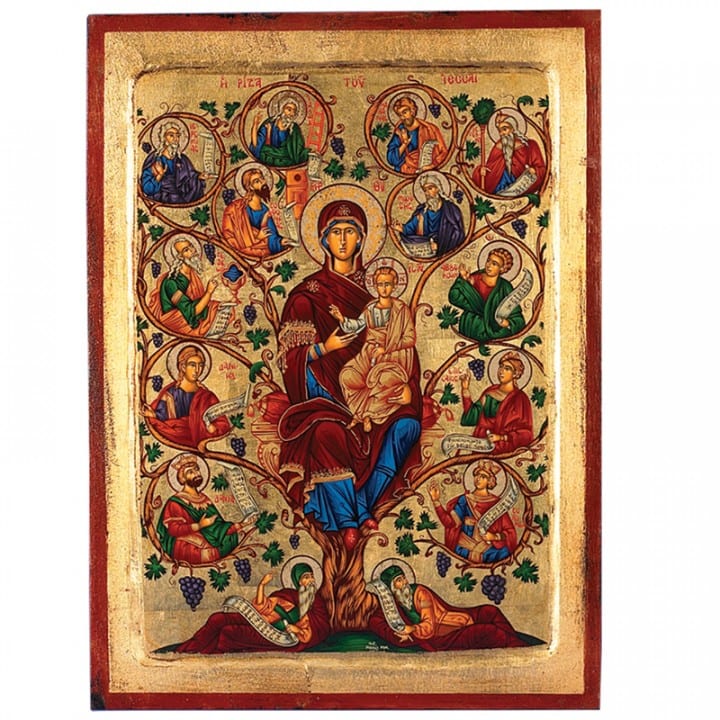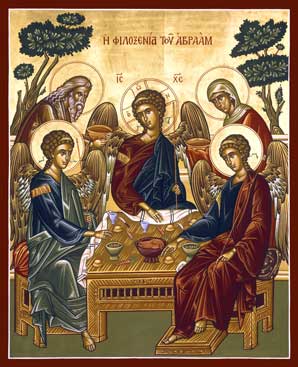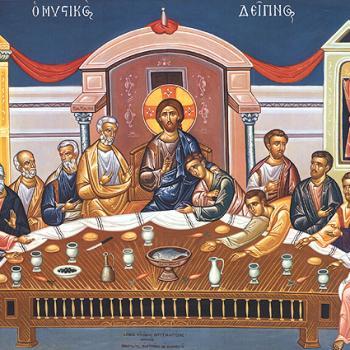![]() The Catechism of the Catholic Church (CCC), quoting the Second Vatican Council’s Lumen Gentium, introduces the Eucharist as “the source and summit of the Christian life.” When explaining this concept while teaching catechesis or theology, I often use the allegory of Eucharist as “a fountain on a mountain.” That is, our spiritual journey as Christians this side of Paradise is to seek deeper intimacy with Christ, who is present to us through the Eucharist.
The Catechism of the Catholic Church (CCC), quoting the Second Vatican Council’s Lumen Gentium, introduces the Eucharist as “the source and summit of the Christian life.” When explaining this concept while teaching catechesis or theology, I often use the allegory of Eucharist as “a fountain on a mountain.” That is, our spiritual journey as Christians this side of Paradise is to seek deeper intimacy with Christ, who is present to us through the Eucharist.
Moreover, it is through Christ in the Eucharist that we strengthen our communion with the other two Divine Persons: the Father and the Holy Spirit. As such, the Eucharist is the summit of one’s spiritual life, similar to the peak of a mountain that a pilgrim might climb. Likewise, one must be nourished spiritually throughout one’s pilgrimage of metanoia and theosis, and thus the Eucharist is also the source of one’s spiritual life, like the refreshing waters of a fountain’s stream.
“The other sacraments, and indeed all ecclesiastical ministries and works of the apostolate, are bound up with the Eucharist and are oriented toward it. For in the blessed Eucharist is contained the whole spiritual good of the Church, namely Christ himself, our Pasch,” CCC article 1324 continues. This passage introducing the Eucharist is intrinsically ecclesiological.
As an aside, ecclesiology is simply a fancy word for the theology of what it means to be the Church. Popular examples of ecclesiology are the Church as the Body of Christ, or as the gathering of God’s people, or as herald of the Gospel.
All ecclesiastical ministry and other sacred acts of the Church are orientated toward the Eucharist, which is Christ Himself. Thus the purpose, prayer and ministry of the Church is found in the Eucharist, according to Catholic teaching.
As noted by Avery Cardinal Dulles in “The Church as Sacrament,” the chapter of his book Models of the Church that discusses the connection between sacrament and ecclesiology, “Christ, as the sacrament of God, contains the grace that he signifies. Conversely, he signifies and confers the grace he contains” (p. 60).
Previously in the chapter, Dulles qualified that he was speaking of sacrament in a primordial sense, and not of any of the seven sacraments individually.
Nevertheless, as the sacrament par excellence in which Christ is really present, it can be said that the Eucharist – more than any other sacrament – signifies, contains and confers Christ in a special way.
Dulles himself recognized the special connection between Eucharist and ecclesiology when, further into the same chapter, he stated the following:
The Eucharist is indivisibly Christological and ecclesiological. In its Christological aspect it actualizes in a palpable way the presence of the Redeemer with the congregation of those who look to him in love and trust. In its ecclesiological aspect the Eucharist celebrates and solidifies the union of the faithful with one another about the holy table. Inasmuch as the celebration of the Eucharist is the sacramental anticipation of the heavenly marriage banquet, the final, eternal form of the community of the saints shines forth even now in this solemnity, just as the sources of the Church, Christ’s own sacrifice, is present in it.
Space does not permit me to examine Dulles’ above quotation in any depth. Therefore, I will limit myself to simply noting three insights offered by Dulles with regards to Eucharistic ecclesiology. The first is that the Eucharist actualizes Christ’s presence within the congregation. The second is that the Eucharist solidifies the communion of Christians gathered. The third is eschatological, in that the Eucharist anticipates the heavenly banquet where there is no division among the communion of saints gathered in God’s eternal presence.
Important within the present context is that each of the aforementioned insights is for the most part held in common between Catholicism and Eastern Orthodoxy. Thus the Eucharist has great potential spiritually to bring about full ecclesial unity between Orthodox and Catholic believers: a unity both anticipate in heaven whenever each celebrates the Eucharist.












